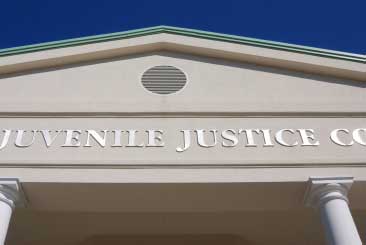|
|
| Give Juvenile Lifers a Second Chance |
| By James Alan Fox, Lipman Family Professor of Criminology, Law and Public Policy, Northeastern University |
| Published: 02/02/2015 |
 This article was reprinted with permission from USA Today.
This article was reprinted with permission from USA Today.
In December, by agreeing to hear arguments in Toca v. Louisiana, the U.S. Supreme Court opened the door for another important move toward rationalizing the administration of juvenile justice. Two years ago, the court ruled in Miller v. Alabama that the statues in 28 states mandating life imprisonment without parole eligibility for juvenile murderers were unconstitutional — that such sentences could only be imposed with deliberative discretion. Unfortunately, the court was silent on whether the prohibition should apply retroactively to the hundreds of offenders who had previously been sentenced under inflexible laws. Resentencing of lifers incarcerated for their youthful indiscretions, however horrific, would, of course, bring their interests into direct conflict with those of their victims' families who had been assured that justice was done. There was supposed to be no second chance for the killer, just as there was no second chance for the deceased. However, if mandatory life sentences for juveniles are considered excessively cruel, then fairness dictates that the wrongs of the past be corrected. Through a series of decisions over the last two decades, the Supreme Court has taken incremental steps to undo the Draconian laws that were passed in the 1990s amidst a climate of hysteria over so-called "superpredators." Contrary to the knee jerk legislative response in many states to have violent youth prosecuted and punished as adults, the court has repeatedly indicated that juveniles are different. Time and time again, the court has held that juveniles are less culpable than adults, no matter how heinous the crime. Juveniles may walk like adults, talk like adults, and even kill like adults, but they reason like children. Although they understand the wrongfulness of killing, most do not quite grasp the enormous consequences for themselves, much less for their victims. Should the Supreme Court follow its precedent and make retroactive the prohibition against mandatory life without parole for juveniles, the task of reform will still not quite be complete. Life without parole, be it mandatory or optional, does not make good sense. How can a sentencing judge or jury anticipate what a 15-year-old convicted murderer will be like at age 40 or 50? Determinations about dangerousness should be made far down the road by a parole board fully informed of the prisoner's development. Life with the possibility of parole is no guarantee the offender will someday walk free. It only offers hope that can serve as a powerful incentive for change. In recent weeks, the Massachusetts governor's office has been grappling with a request from actor Mark Wahlberg to have his juvenile record of violent misbehavior expunged in light of his unselfish efforts to help troubled youth turn their lives around, just as he had done. Although young Wahlberg's crimes did not rise to the level of murder, the point remains that today he is nothing like the hoodlum he was during adolescence. Juvenile offenders, and not just those who grow into celebrity, are malleable and have the capacity for rehabilitation if given the opportunity. By its latest move, one can anticipate that the Supreme Court will indeed make the Miller prohibition against mandatory life without parole for juveniles retroactive. But here's hoping that at some point, the court has the opportunity and the wisdom to abolish juvenile life without parole altogether. Editor's note: Author James Alan Fox is the Lipman Family Professor of Criminology, Law, and Public Policy at Northeastern University. He is a member of USA TODAY'S Board of Contributors. He has written 18 books, including his newest, "Extreme Killing: Understanding Serial and Mass Murder." He has published dozens of journal and magazine articles, and hundreds of freelance columns in newspapers around the country, primarily in the areas of multiple murder, youth crime, school and campus violence, workplace violence, and capital punishment. Other articles by Fox: |
MARKETPLACE search vendors | advanced search

IN CASE YOU MISSED IT
|


Comments:
No comments have been posted for this article.
Login to let us know what you think